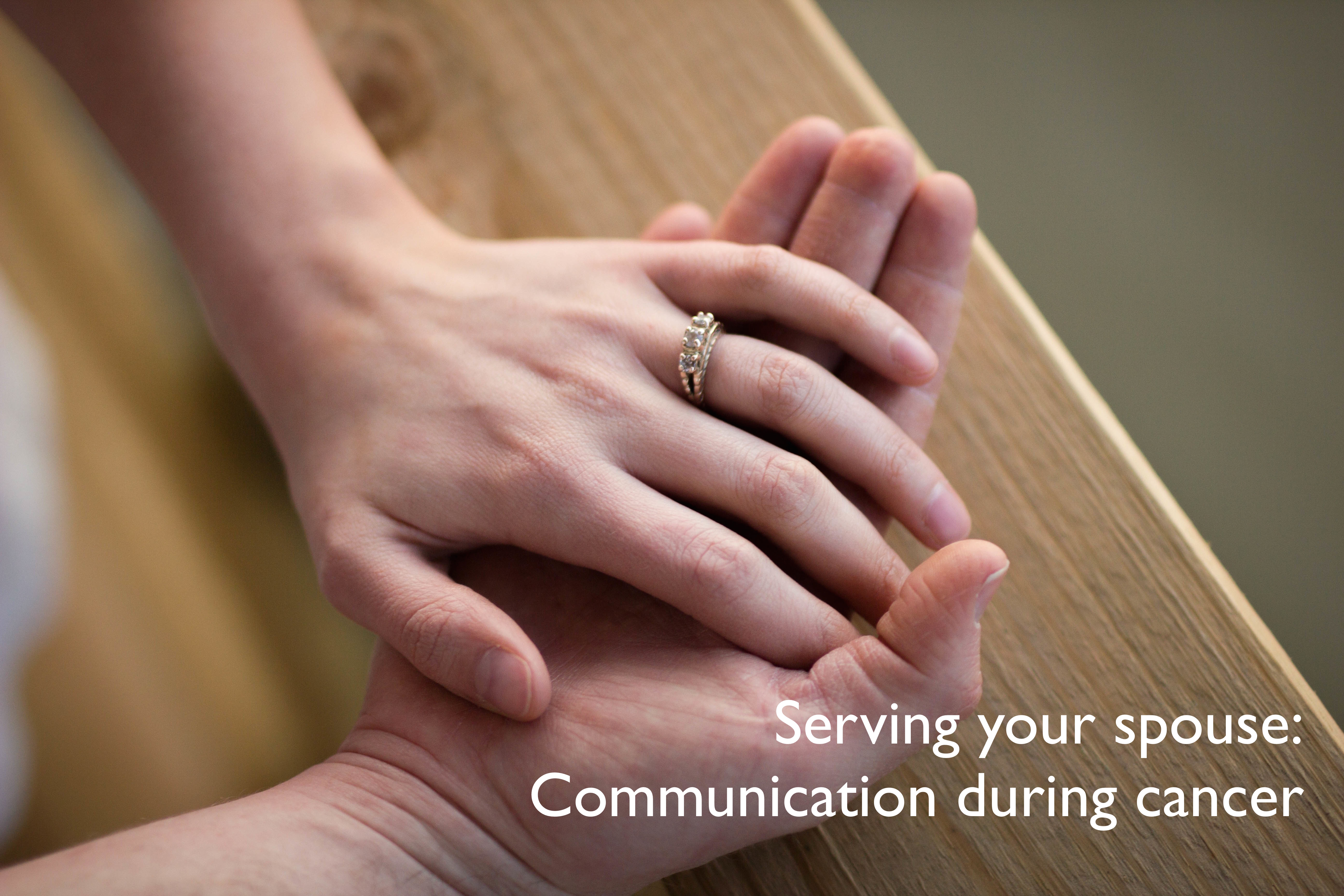Communication with those we love can be challenging even in the best of times. In light of a cancer diagnosis, communication can quickly become daunting. Even couples who typically communicate seamlessly can struggle.
Good communication isn’t easy and doesn’t come naturally. I see a lot of patients who struggle to communicate with their spouse, and it requires practice, dedication and effort. But with strong communication throughout, you and your partner can stay connected.
Couples who have spent their lives sharing with each other may find it easier to overcome communication challenges when faced with a cancer diagnosis. But for couples who have struggled with connecting in the past, a cancer diagnosis may be a transformational moment. Consider it an opportunity to turn over a new leaf and bring new meaning into what might be a silent relationship. It will take effort, but can ultimately be very rewarding.
Whether you’re the patient or the spouse of a patient, here are some steps you can take when walking alongside your partner during a cancer diagnosis and treatment.
Commit to honesty
Good communication happens with a foundation of openness and honesty. Cancer is a journey full of ups and downs, so from the start, commit to sharing your experiences freely and listening with love. Discussing a cancer diagnosis also involves topics that couples may not wish to discuss. This includes sexual problems, physical limitations, financial worries and parenting decisions. Make a pact to accept your partner’s thoughts and feelings without criticism and without blame. It’s one way to demonstrate that you love your partner no matter what.
Practice active listening
Active listening means paying close attention to what your partner is saying in the moment, not thinking about what you will say next or how you plan to respond. It’s all about concentrating on what your spouse is sharing. Restate what your partner said in your own words, and ask for feedback to make sure you understand their perspective. This is useful not only when discussing details of treatment, but also when talking about new challenges and unexpected emotions. Active listening shows your spouse that their feelings matter to you, and that you value what he or she has to say.
Focus, focus, focus
It’s tempting to let your mind wander during tough conversations. Don’t assume you know what your partner is thinking or feeling, or that you know what your partner will say next. Ask questions if something is unclear. And choose times to talk when you are both free from distractions and neither one of you is rushed. Some couples find that scheduling a daily or weekly time to talk works well. If it’s been an especially trying or exhausting day, table the conversation for a time when you’re both able to focus. Focusing on your partner’s thoughts and needs is an act of love that can bring you closer together. Give your spouse the gift of your undivided attention.
Know when to press pause
Hard conversations can frustrate even the strongest of couples. In moments of anger, find a calming routine — take some deep breaths, leave the room for a few minutes, go for a quick walk, meditate or pray. And if your partner needs a moment when you’re in the middle of a particularly intense discussion, give them that gift. When you’re both cooled down, get back to the conversation.
Take your time
Tough conversations get even more difficult if you’re rushing. Take the time to decide what you want to say, and give your partner time as well. And don’t expect to resolve difficult topics in one conversation. Focus on one topic at a time, and agree to continue talking about the subject another day.
Laugh!
Don’t be afraid to laugh. Humor may help you and your partner cope, and a smile can go a long way. When you find joy along your journey, make it a point to share that with your spouse. Uplifting or funny experiences, no matter how small, can help you both persevere. Communicating these moments verbally can be meaningful for both of you.
Give grace
Cancer is more than a physical condition; cancer affects us emotionally, mentally and spiritually. So if your partner is having a particularly difficult day, be generous with grace and understanding. Talk about the ways you each cope with stress to identify what you both need in a conversation. For example, one partner may need validation and emotional support, while the other may view cancer as a problem to be solved or fixed. Recognize that, even though it might be different from yours, your partner’s response has value.
Communicate with clarity
Be accurate and clear when talking to your spouse. For example, “hurt” could mean sad, disappointed or unhappy. The more specific you get, the better your spouse can respond. Avoid overarching statements, particularly those with “always” and “never,” instead being as specific as you can. Frame statements as requests or as questions. Rather than “You’re always late for appointments,” try “How can we work together to help you arrive for appointments on time?”
Seek help
If it’s increasingly difficult to talk with your partner, consider meeting with a professional counselor. This person can help address your communication concerns and guide you through difficult conversations. And, unlike a friend or family member, a counselor can offer an objective perspective and offer professional advice on how you and your partner can best move forward together. Some couples also find support groups to be helpful settings for improving communication.
Harness the power of prayer
Particulary during difficult seasons, couples can find unity and peace through shared beliefs. At Hope4Cancer, we serve patients with a wide variety of faiths and beliefs. God is an important center in your life — both as individuals and as a couple. God can be a place of peace and harmony, a help where all corporeal methods fail. So as a couple, finding camaraderie in your faith, as well as praying together, can be a crucial bridge towards better communication and better connection.
Be there
Sometimes you won’t know what to say. In the darkest moments and hardest conversations, it can seem impossible to find the right words to say. Affirm your commitment to your partner and stay by their side. When words escape us, simply being there with your spouse speaks volumes.
Cancer changes the lives of each person in a relationship, and both require support. But I’ve seen many patients’ relationships grow stronger through the cancer journey. Walking alongside your spouse during a life-changing diagnosis can be a gratifying and emotionally intimate experience, one that can build your relationship and even bring you closer. Good communication is so important throughout.

